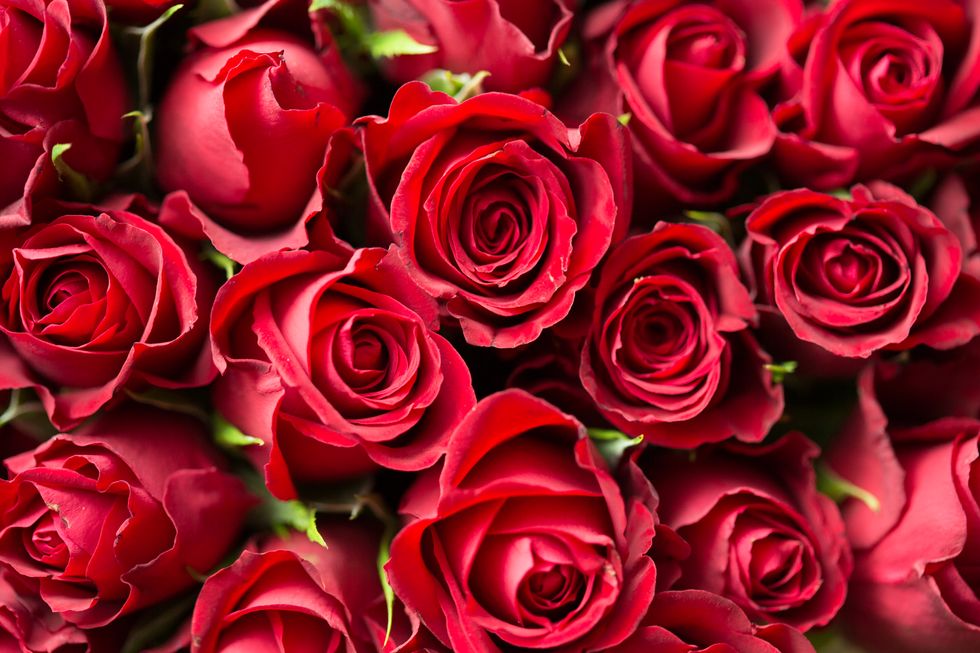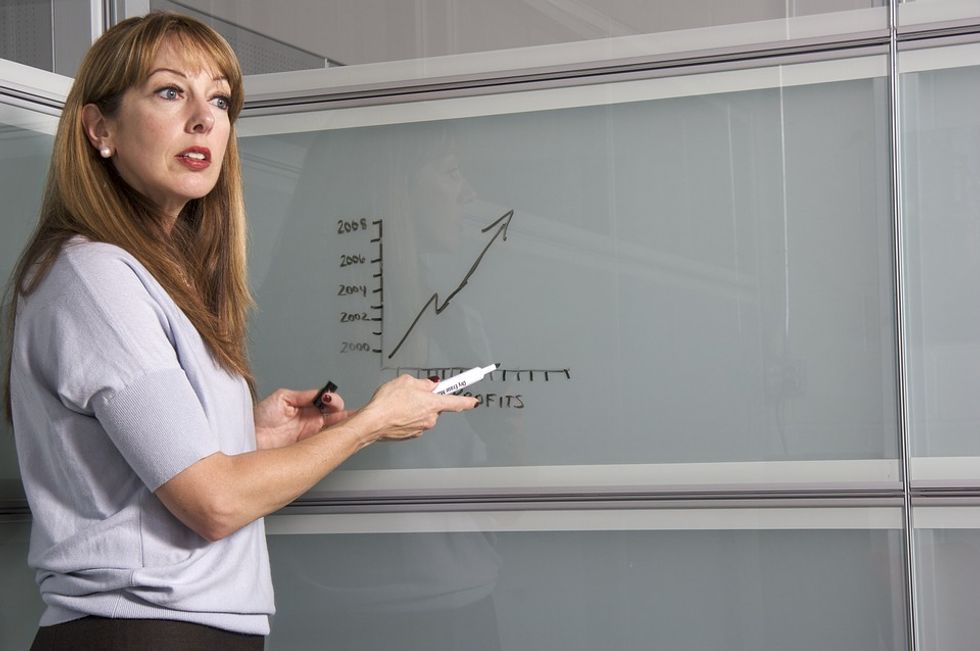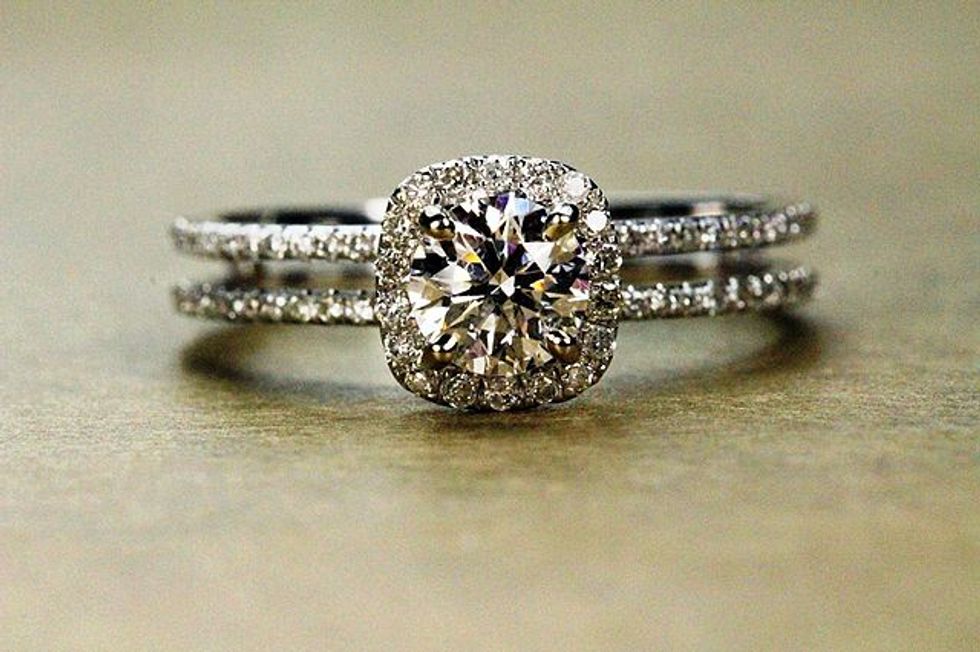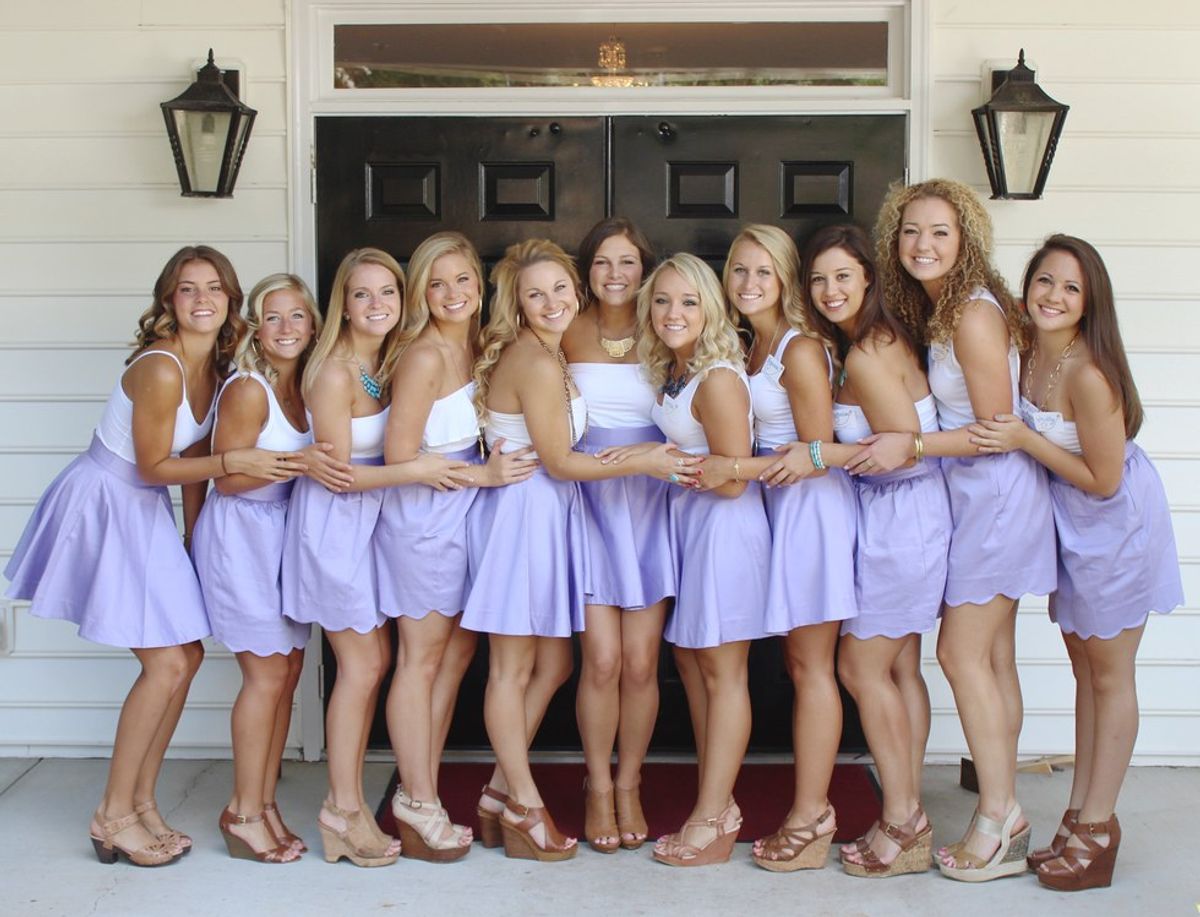For as long as I’ve been watching shows from "The Bachelor" franchise, I’ve been met with a lot of snide comments about how the show is “objectively” terrible, along with every other version of reality show that airs on TV.
I used to be very passive about these comments, laughing along while getting them to watch the show with me anyway, only to watch them get invested for themselves. It doesn’t matter who this person is – I’ve tried it with family members, boyfriends, and friends of all genders, ages, and backgrounds.
The outcome is still the same. What these people don’t want you to know is that they secretly love the drama and the escapism that reality TV provides them, but they are too ashamed to admit it.
Although “The Bachelor” is currently in the middle of running its 22nd season, meaning it’s wildly successful in terms of longevity on TV and there is a huge fan-base to support it, there’s still a stigma around admitting to enjoying it.
I’ve asked people why they feel so strongly about their distaste towards the show and came up with the following reasons and my arguments against them all.
1. It's all made-up.
This is debatable at best since there are people who got engaged off “The Bachelor” and its spinoffs, got married, and now have kids. Unless they are staying together and reproducing in the name of method acting, I think it’s safe to say that there could be some legitimacy to the process on “The Bachelor.”
Obviously, there is a gap between reality TV and reality in terms of how people live. Most people simply don’t take two to three months off their job to stay in a mansion with a bunch of other people, vying after the same person, or take the time to just focus on the possibility of getting engaged. However, this is part of the appeal. If you were ever looking for an invitation to unashamedly live vicariously through someone, here it is.
2. It's unrelatable.
Wait… you aren’t in your mid-twenties with a thriving career and drop-dead gorgeous looks? Just kidding. In all seriousness though, the name of the game when it comes to “The Bachelor” is escapism. I’ve read articles about the people who create this fairytale world for the cameras and every season casting agents travel the country looking for the most attractive, most successful counterparts. So of course it looks nothing like your real life. Chances are you don’t have people working around the clock to curate your romantic life.
I think part of the idea that a show has to be relatable comes from the idea that you can accurately judge someone solely based off their TV preferences. However, in the same way that I can watch “Justice Served: Murderous Affairs” without being married, having an affair, or having murderous intent, you can watch “The Bachelor” without being well-off and generally recognized as abnormally physically blessed.
3. There's no education value.
The only graph you're going to get by watching this show is one tracking your personal reactions to decisions made about a love life that is not your own. Here we see it steadily rising.
Au contraire. Some children’s psychologists as mentioned in The New York Times have pointed to the fact that learning can be done through television, so long as there is interaction with the program itself. Furthermore, these interactions and decision-making processes need to be repeated for the information to really stick.
So when you are shouting at the TV that the wrong person was cut or that you think one person should win, you start reevaluating and applying your own standards for romantic partners to the show itself. If you’ve ever watched this show with someone else, it could even lead to discussing which partner is best for the lead and therefore are crowd-sourcing a response to a problem.
Since this show is aired weekly, these decisions are more likely to be retained and to be called upon when you have to make the all-important decision in your life if your significant other is the one for you (or in the least can make you more aware of the kind of person you’re attracted to). At least this is my theory.
Also in our current age where educational programming is largely government-funded and/or viewed within the walls of a public school, I would be willing to bet that you probably don’t just go around watching documentaries all day.
4. The show's content is unethical.
Whether or not the conditions contestants are subjected to are good is a whole other topic, but one important thing to keep in mind is that all of the participants agree to the conditions of the show before competing. So while it might seem kind of terrible to pit women against other women for a single man’s affections (and vice versa for “The Bachelorette”), that comes with the fact that it was done consensually.
Every season, the show selects people to vilify and show as more emotional than other people in the house to create interest, which can be at best-curated entertainment and at worst low-key misrepresentation and possible defamation. This is no secret to people who sign up whether they apply for the "right" reasons (engagement) or the "wrong" ones (fame, money, etc.) and since you have to be at least 21 to compete, you are considered a fully-rational decision-making adult that will weigh the pros and cons.
Assuming it’s a pretty accurate representation though, it could be a very enlightening way to see yourself from an outsiders’ interpretation of you or at least make you think twice on how you are type-casting people in your own life.
5. The show doesn't matter.
Okay, look, the world would not look very different if a lot of shows just up and disappeared. This is a pastime.
For most people I know, it's also very difficult to focus on being the most contributing human being in history every second of every day and taking breaks can actually give you the mental break you need to slay more dragons in the morning. We’re not about efficiency or changing the world here right now via "The Bachelor". This show is about filling Monday nights with friends and good laughs. For me, that experience does matter.
6. They're going to break up anyway.
So apparently if they break up, they have to give the ring back. I always wondered what happened to them. Like are they resold? And if so, do the new owners know about who they belong to before? Is this a selling point? So many questions.
As reported by WTOP, a 2013 finding by The Wedding Report shows that only 13 percent of all engagements in the U.S. were called off before saying, “I do.” According to Shape Magazine, that number looks more like 83 percent for our Bachelors and Bachelorettes. It’s rough going for a couple that literally pledged their lives to each other in a foreign country after knowing each other for a short two months.
Such is life. In some ways, I think it’s really sobering knowing that even people who uproot their lives for love don’t make it out the other side. Maybe it will give you one more gut check if you ever decide to take the plunge.
7. It's not diverse at all.
Despite relatively greater diversity we saw in Rachel’s season of “The Bachelorette,” many memes have been made this season over the absurd amount of white blonde women on the show. In fact, three out of the four Lauren’s in the show fit that description as well, raising a few eyebrows. It’s been a bit of a step back for “The Bachelor,” but the other half of that is that they have to ostensibly pick people that the guy (currently an ex-race car driver turned real estate agent named Arie) could see himself marrying.
As we all know, before this season there was Emily Maynard (who is also blonde) so it kind of makes sense. Maybe it’s less of the show’s inner bias and more of a reflection of how people really do have biases to the kinds of people they consider romantic prospects. This is food for thought for you and your closest buds to discuss while viewing and might open your eyes to some of the limits you place on yourself romantically as well… Or you can just watch the show and enjoy it for its surface entertainment value. I’m just saying.





























